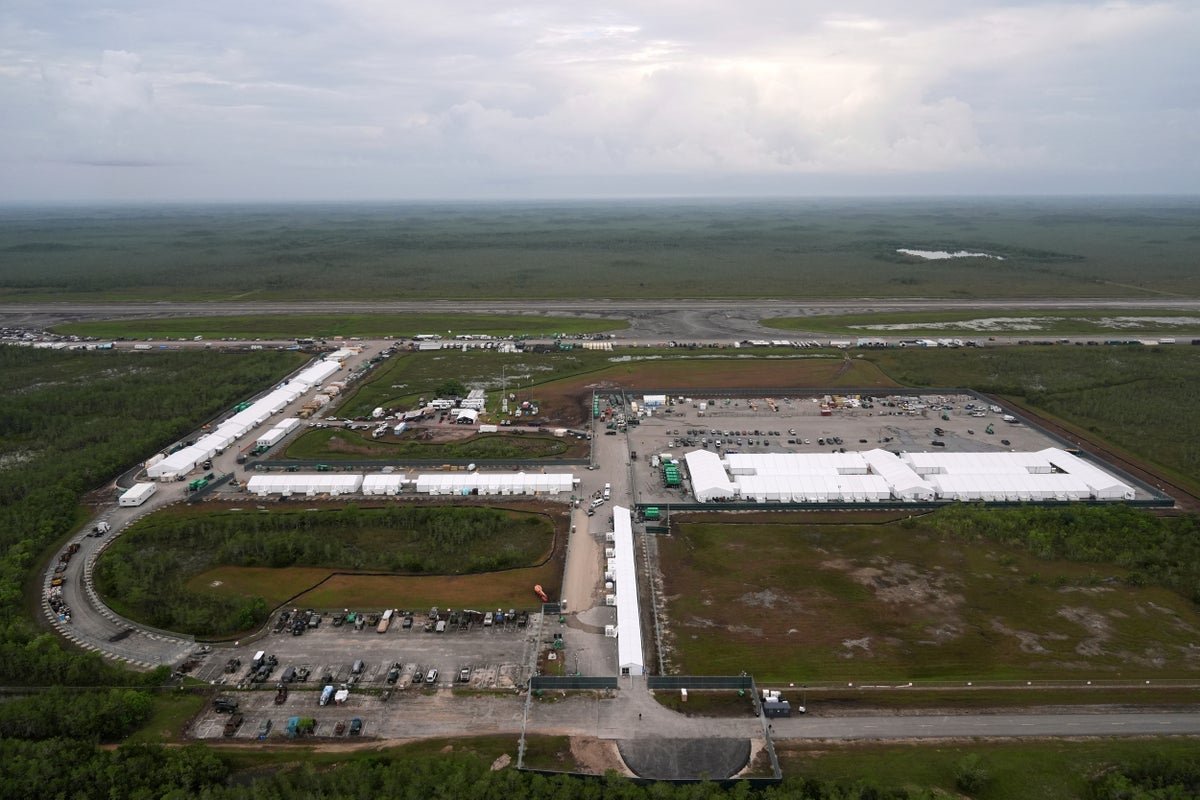US Politics
Top Florida official says ‘Alligator Alcatraz’ will likely be empty within days, email shows

Your support helps us to tell the story
From reproductive rights to climate change to Big Tech, The Independent is on the ground when the story is developing. Whether it’s investigating the financials of Elon Musk’s pro-Trump PAC or producing our latest documentary, ‘The A Word’, which shines a light on the American women fighting for reproductive rights, we know how important it is to parse out the facts from the messaging.
At such a critical moment in US history, we need reporters on the ground. Your donation allows us to keep sending journalists to speak to both sides of the story.
The Independent is trusted by Americans across the entire political spectrum. And unlike many other quality news outlets, we choose not to lock Americans out of our reporting and analysis with paywalls. We believe quality journalism should be available to everyone, paid for by those who can afford it.
Your support makes all the difference.
Read more
The state of Florida’s controversial “Alligator Alcatraz” detention facility holding federal immigration detainees could be empty within a matter of days, according to state officials.
“We are probably going to be down to 0 individuals within a few days,” reads an August 22 email from Florida Division of Emergency Management Executive Director Kevin Guthrie obtained by the Associated Press.
The admission came in a message sent to a South Florida rabbi related to providing chaplaincy services at the facility, which was swiftly constructed on a disused training air strip. The rabbi’s executive assistant who sent the original email to Guthrie confirmed its veracity to the AP.
The Independent has contacted the Florida Division of Emergency Management for comment.
Florida Governor Ron DeSantis said at a press conference on Wednesday federal officials were deporting and transferring detainees out of the facility.

“Our role is to provide more space for processing and detention leading to deportation,” the governor said. “We are not the ones actually removing them from those facilities.”
The facility has capacity for about 2,000 detainees, though state officials initially said they hoped to hold as many as twice that level to make up for overcrowded detention facilities elsewhere.
The prison held about 900 people in mid-July, according to members of Congress who visited. The population dwindled to around 300 by last week, according to a Florida congressman.
Last week, a federal judge overseeing an environmental lawsuit against Alligator Alcatraz issued an order halting the expansion of the controversial facility and ordering officials to begin its closure, holding that detainees were expected to be out of the facility within 60 days, at which point Florida would begin dismantling the prison camp. The state has appealed.
“DHS is complying with this order and moving detainees to other facilities,” the U.S. Department of Homeland told The Independent in a statement. “We will continue to fight tooth-and-nail to remove the worst of the worst from American streets.”
A July analysis found that among the more than 700 people being held in the facility at the time, one-third had no criminal record, while 250 had immigration violations, typically considered civil offenses.
The detention center was built rapidly two months ago at a lightly used, single-runway training airport in the middle of the rugged and remote Everglades. State officials have signed more than $245 million in contracts for building and operating the facility, which officially opened July 1.
Earlier this month, the state of Florida announced plans to open another immigration detention facility, this one dubbed “Deportation Depot,” at the site of a former prison.
